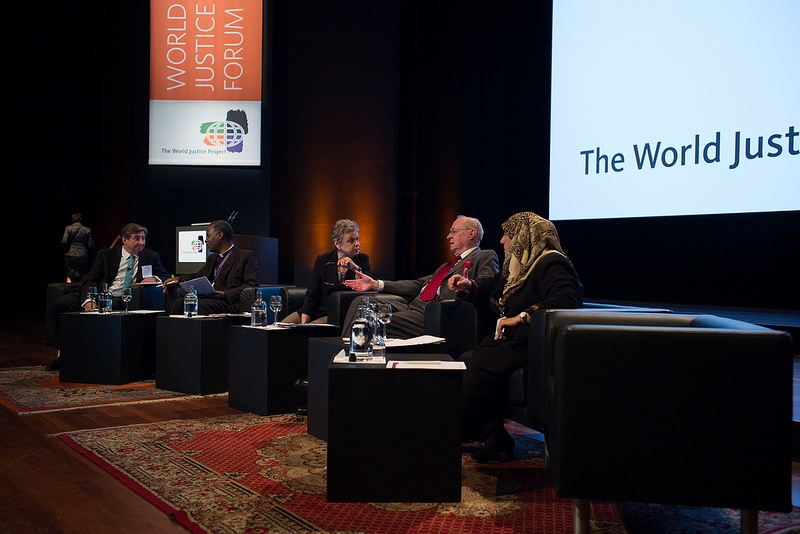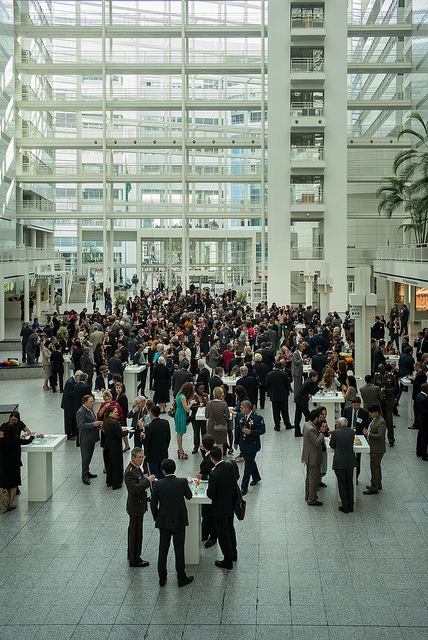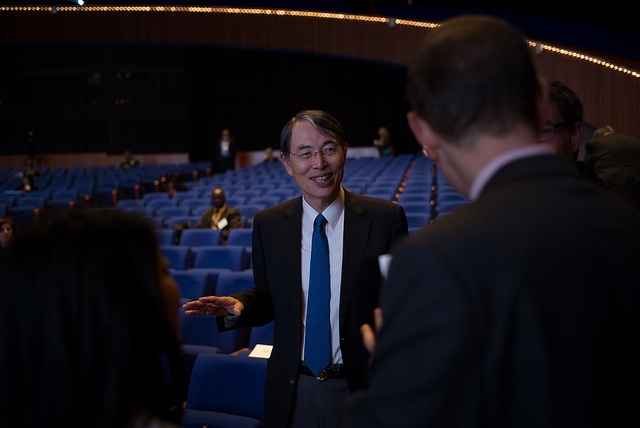
Who defines the rule of law? What can we do to strengthen it? And why should non-lawyers or judges care about it?
This week, 600-odd delegates from 120 countries arrived in The Hague to answer these questions and to dive into many more.
Official proceeding kicked-off with a curtain-raising keynote by William H. Neukom, the founder and CEO of the World Justice Project. Mr. Neukom set the stage by walking delegates through the various international traditions and cultural roots of today's understanding of and definition of the rule of law.
Following Mr. Neukom, the forum enjoyed a show-stopping panel headlined by U.S. Supreme Court Justice Anthony Kennedy, who explained how the ideas of rule of law must be embedded within the popular consciousness, not imposed from above. Thabo Makoba, The Archbishop of Cape Town, reminded delegates that justice is primarily about protecting the vulnerable and fulfills a vital social function and underscored the human imperatives of the law.

Peter Rees, QC, from Royal Dutch Shell highlighted the linkages between justice, economic prosperity, and business, explaining the imperative for rule of law in fostering development. SakenaYacoobi of the Afghan Institute for Learning passionately explained her principles-based approach to the rule of law in empowering women in Afghanistan. Santiago (Santi) Siri, who founded Grupo 42 in Argentina, challenged his fellow panelists and the audience to consider the opportunities offered by the transition from print-based laws to digitized or internet-hosted governance and justice, enabling citizen participation the rule of law.
After a presentation of the World Justice Project's Rule of Law Index, MehréziaLabidi-Maïza - the deputy speaker of Tunisia's National Constituent Assembly - gave her personal account of the rule of law in post-revolution Tunisia today. She spoke with passion and energy about the opportunities and passions facing her country.
The second half of the day's agenda was given over to topical discussions and "incubator" sessions, where participants rolled up their sleeves to begin creating practical approaches to address rule of law challenges around the world. All delegates are encouraged to commit to undertake a new project to promote rule of law within their own communities, and the 13 incubator sessions provide individuals with a shared interest the opportunity to work together in framing projects, which will be unveiled at the end of the meeting - check back on our blog for results at the end of the week.
The day concluded with a welcoming reception for Forum attendees at the City Hall of The Hague, where the deputy mayor Marjolein de Jong explained the particular importance The Hague places on international justice and peace, and its role in promoting respect for the rule of law around the globe.

President Song Sang-Hyun, president of the International Criminal Court, reported to delegates at the beginning of day two of the World Justice Forum IV his belief that we are ready for great advances, but that advances in justice will require hard work. His keynote address underscored the importance of our undertaking: "The force of law must prevail over the law of force."

Later today, we'll be hearing from Opportunity Fund grantees on how to create effective, practical rule of law programs; topical panels on issues ranging from the power of art to food justice to the role of the military in advancing the rule of law; a keynote discussion featuring Ruth Bader Ginsburg and Shirin Ebadi; and more. Check back for updates and guest posts, and keep an eye on our #WJForum social media throughout the week for the latest news and photos.
Photo Credit: Daniel Maissan / World Justice Project






